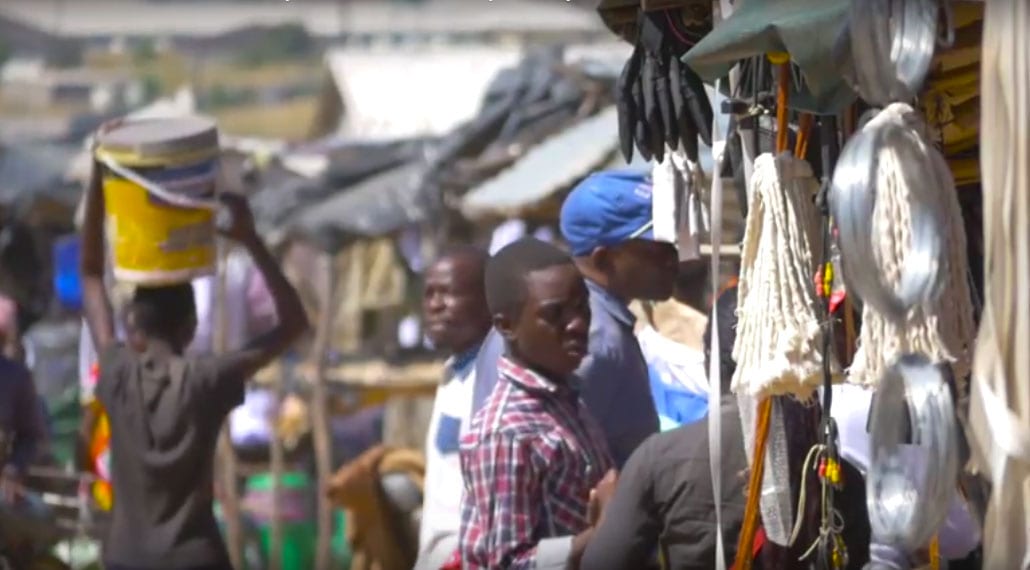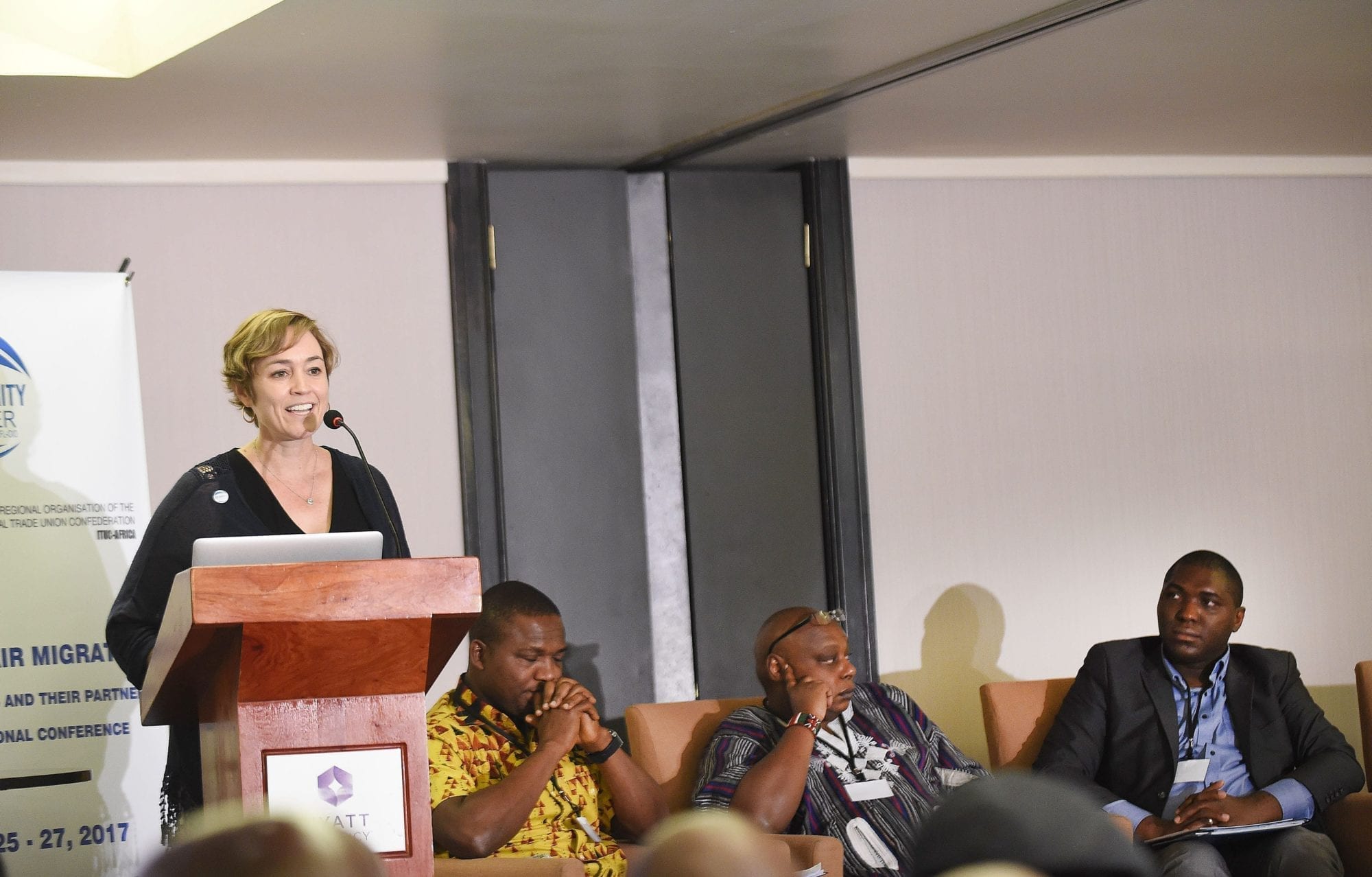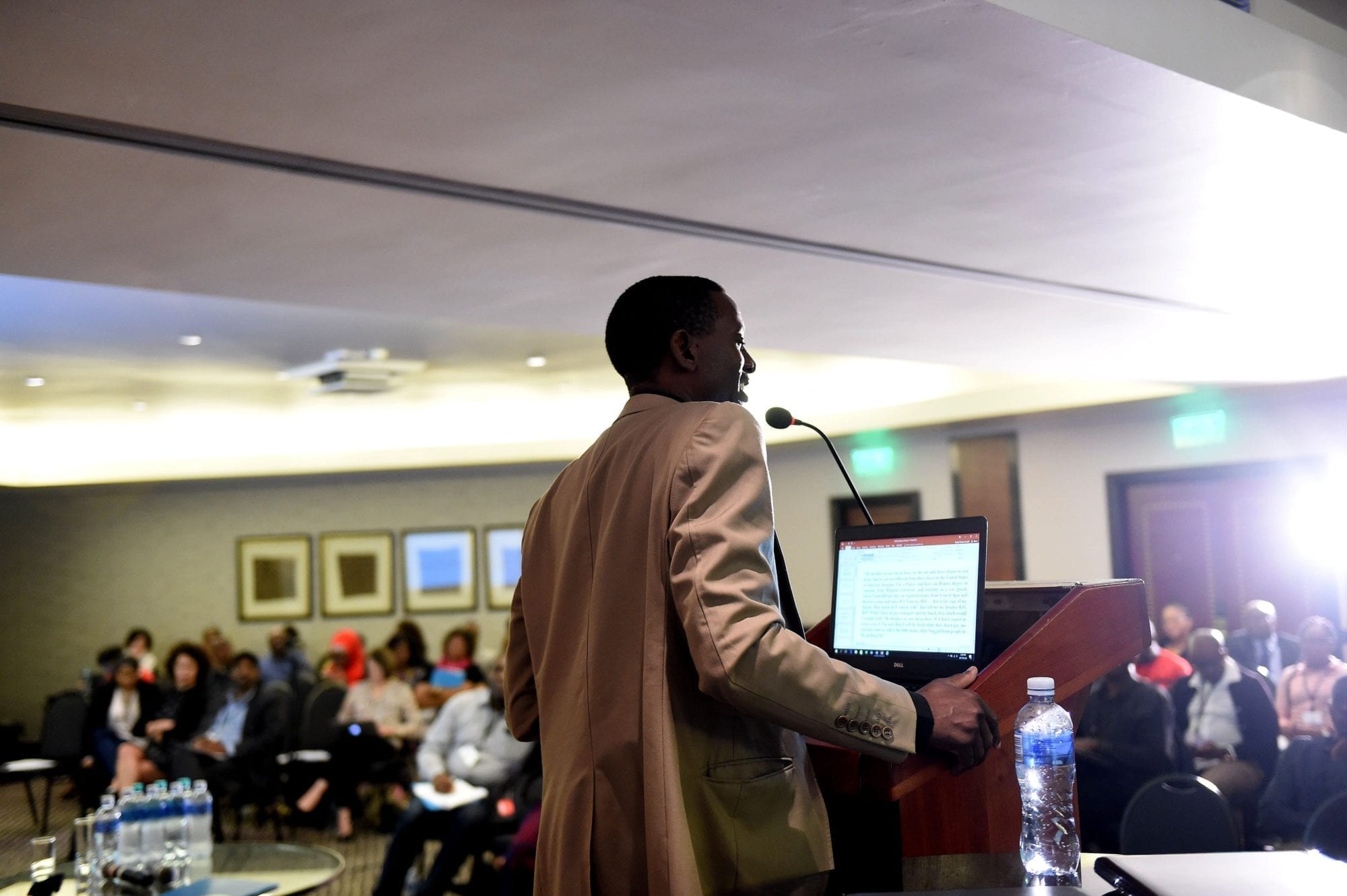Seventeen years ago, Chris Muwani migrated from Zimbabwe to South Africa, where he works on a tomato farm. If he does not fulfill his daily quota, he is not paid for the day. So to complete his workload, he often does not walk the long distance to access the toilet or...

The Solidarity Center assists workers in the informal economy, such as market vendors in Zimbabwe, come together to assert their rights and raise living standards. Credit: ZCIEA
‘We Don’t Park Our Human Rights at the Border’
More than 130 union leaders, migrant worker rights advocates and top international human rights officials from nearly two dozen countries were urged to take action to improve migrant worker rights in by a range of speakers on the second day of the January 25–27...
‘Growing Level of Intolerance against Labor Migrants’
Xenophobia and racism are embedded in the daily economic and social situation of labor migrants and refugees, according to Joseph Rudigi Rukema, a sociology professor at the University of KwaZulu-Natal. “The world is witnessing a growing level of intolerance against...
No Results Found
The page you requested could not be found. Try refining your search, or use the navigation above to locate the post.



